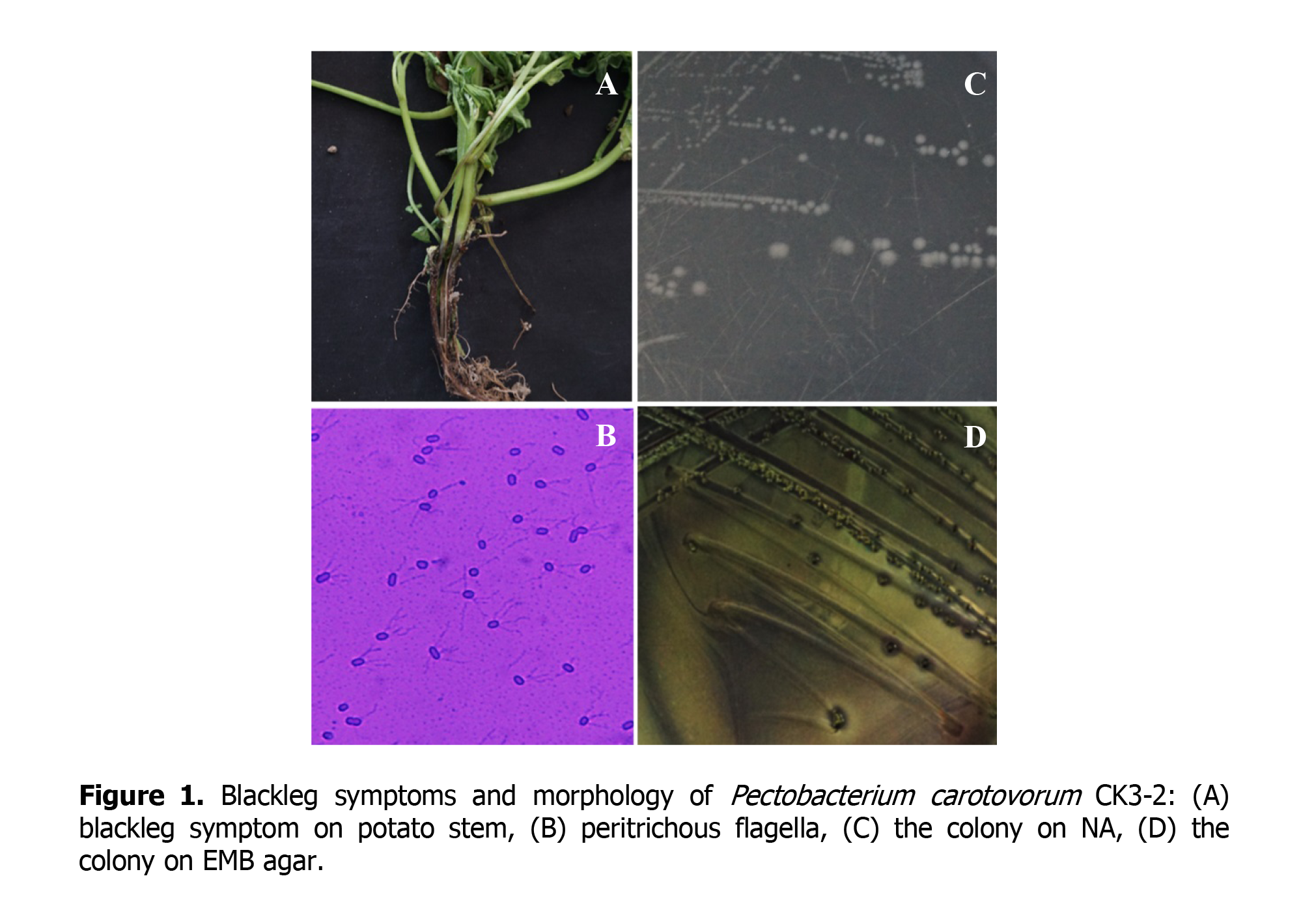Evaluation of Bacillusamyloliquefaciens for control of potato blackleg caused by Pectobacterium carotovorum
Keywords:
Potato, Pectobacterium carotovorum , Bacillus amyloliquefaciens , biological control, blackleg, bacterial soft rotAbstract
Potato is an important crop in Chiang Mai, Thailand. Blackleg disease is one of the constraints of potato production. The objective of this study was to evaluate the efficacy of antagonistic bacteria to control the causal pathogen. Diseased potato stems were collected in Chai Prakan District, Chiang Mai Province. The symptoms included black stem lesions, vascular discoloration, and foliar yellowing and wilting. The pathogen was identified as the bacterium Pectobacterium carotovorum CK3-2 by morphological characteristics and sequencing the 16S rDNA gene. Bacillus amyloliquefaciens isolates BB06, BB18, BB23 and NSB4 recovered from the rhizosphere of a number of different plants species, and identified by 16S rDNA sequence, were provided by the Bacteria Plant Disease Laboratory, Faculty of Agriculture, Chiang Mai University. These B. amyloliquefaciens isolates produced zones of inhibition of P. carotovorum CK3-2 of 6.80, 5.80, 6.60 and 8.20 mm, respectively. Co-inoculation experiments on potato tubers indicated that B. amyloliquefaciens BB06 was the most effective treatment in inhibiting invasion of wounds.


